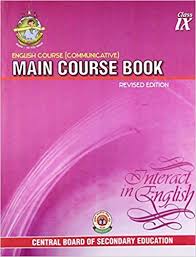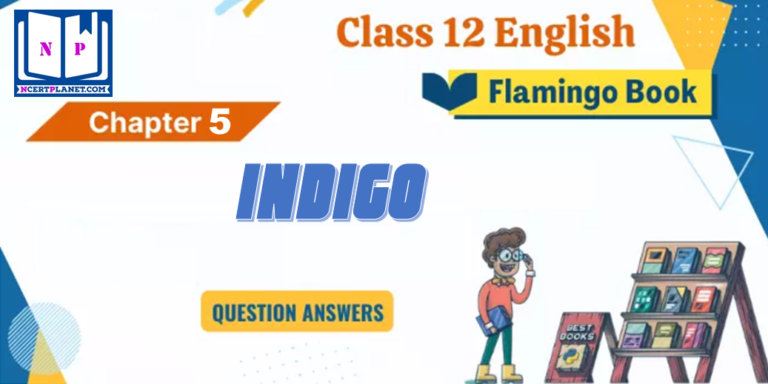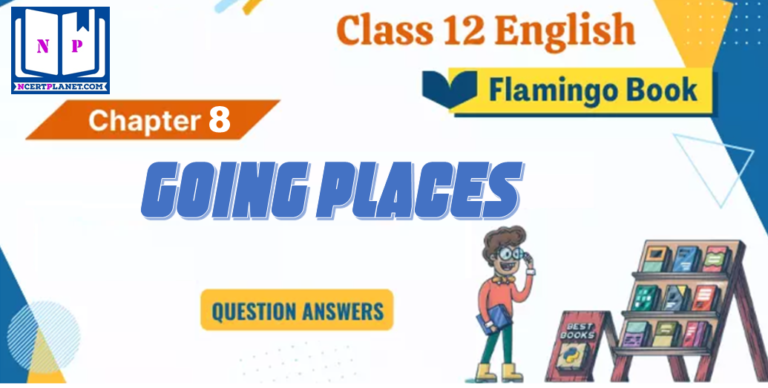Class 9 - English : Main Course Book
Chapter 7C - Hockey and Football

Top Block 1
Question 1: Read and enjoy:
(See Main Course Book, Pages 150-151)
Answer:
Do it Yourself.
Question 2: Form pairs – one student will read the Hockey text, and the second student will read the football text.
Answer:
For self attempt.
Question 3: Each student will now complete his/her half of the following table (Hockey or Football), by adding information from the text each has read.
| Particular | Hockey | Football |
|---|---|---|
| Ball: | ||
| Playing Area: | ||
| Duration: | ||
| Judging: | ||
| Penalties: | ||
| Penalty Area: | ||
| Cards: |
Answer:
| Particular | Hockey | Football |
|---|---|---|
| Ball: | Spherical measuring 224-235 milimetres in diameter and weighing 156-163 grams | Spherical ball which is a round, leather-covered, inflated rubber bladder 27-28 inches in circumference and 397-454 grams in weight. |
| Playing Area: | Rectangular ground 100 yards long and 60 yards wide | 100 – 110 metre long and 64 – 67 metre wide |
| Duration: | Two periods of 35 minutes each with a break in between | Two periods of 45 minutes each with a break in between |
| Judging: | Two umpires are the sole judging authority of the game | One referee and two linesmen judge the game |
| Penalties: | A free hit is awarded for any foul committed outside the penalty area or when the ball is hit out of the playing area. A penalty comer is awarded if, within the penalty area, a foul is committed or the ball is hit outside his goal-line. A penalty stroke is given when foul is intentionally committed in the circle. It is hit from the penalty spot with only the goal keeper defending the goal post. | Handling the ball deliberately, pushing or tripping an opponent, or hitting a player from behind are examples of fouls, punishable by a direct free kick or penalty kick depending on where the offence occurred. Other fouls are punishable by an indirect free kick. |
| Penalty Area: | Approximately semi circular area 14.63m from the goal, know n as the shooting circle or ‘D’or penalty area. | N/A |
| Cards: | A yellow card means the player will be off the pitch for five minutes or more. A red card is given for more serious offences and sees the player leave the match for good. | Yellow – Warning card for dangerous play. A second yellow card at the same game leads to a red card, and therefore to a sending off. Red Serious mis-conduct resulting in ejection from the game. If a player has been sent off, no substitute can be brought on in his place. . |
Question 4: When both students have completed their half of the table above, exchange information, by asking and answering questions e.g.
- What’s the weight of the football?
- When do you get a penalty in hockey? As you receive information from your partner, write it down in the other half of the table above. (Do not let your partner look at your table!)
Answer:
- 395-454 gram.
- A free hit is awarded for any foul committed outside the penalty area or when the ball is hit out of the playing area. A penalty corner is awarded if, within the penalty area, a foul is committed or the ball is hit outside his goal-line. A penalty stroke is given when foul is intentionally committed in the circle. It is hit from the penalty spot with only the goal keeper defending the goal post.
Mddle block 1
Question 5: Either in groups or individually, make a power-point presentation on either of the two games. Incorporate points from the table above and any other interesting information/detail.
Answer:
Do it yourself.
Question 6: Your school is playing a football/Hockey match with the neighbouring school. You are the official commentator for the match. Give a running commentary on the last few breathtaking minutes of the match.
Or
In groups of four, give a running commentary of the whole match. Each student must become the commentator at some point of time. (Your commentary should not be of more than three minutes)
Answer:
Do it yourself.



